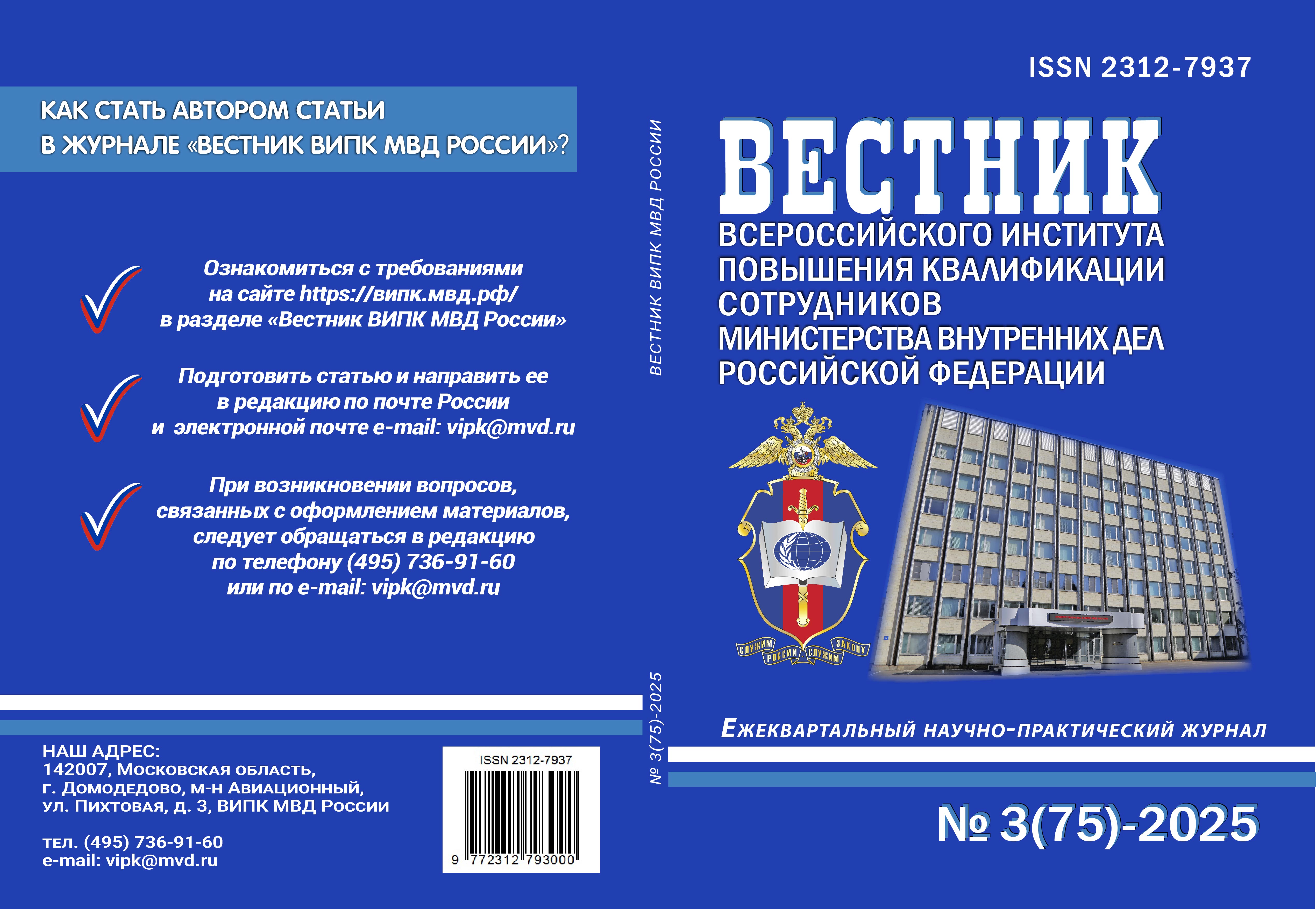employee from 01.01.2024 until now
Moskva, Russian Federation
employee
VIPK MVD Rossii
Russian Federation
UDC 34
In this article, the authors attempt to comprehensively analyze the effectiveness and prospects of using the polygraph in legal practice in modern Russia, considering both theoretical aspects and practical experience. The authors also consider it important to address the admissibility of polygraph data as evidence, their ethical standards, and prospects for improving the legislative framework in this area. The admissibility and appropriateness of using the polygraph in legal practice is the subject of lively debate among scientists, experts, lawyers, psychologists, and law enforcement officials. On the one hand, proponents of the polygraph point to its potential to improve the effectiveness of crime investigations, uncover hidden information, and expedite the process of establishing the truth. On the other hand, opponents highlight the method's shortcomings related to its subjectivity, the possibility of manipulating results, and the lack of definitive scientific evidence supporting its effectiveness. It should be noted that, on the one hand, the polygraph is viewed as an effective tool for establishing the truth, uncovering hidden information, and improving the effectiveness of investigations. On the other hand, there are serious concerns regarding the scientific validity, reliability, and admissibility of polygraph data as evidence in court. Therefore, a comprehensive analysis of the effectiveness and potential for using the polygraph in legal practice in modern Russia, taking into account theoretical, practical, and ethical aspects, is relevant. The study's methodological framework utilizes general scientific methods of analysis and synthesis, induction and deduction, as well as specialized legal methods such as comparative legal analysis, legal interpretation, and case law analysis.
polygraph, lie detector, legal practice, criminal proceedings, civil proceedings, personnel selection, evidence, expertise, legal regulation, efficiency, prospects
1. Hlopovskih Yu. G., Ahmedov U. N., Dudkina E. I. K voprosu o primenenii poligrafa v sledstvenno-sudebnoy praktike // Vestnik Voronezhskogo instituta MVD Rossii. 2020. № 4. EDN PWZHSY.
2. Kiryuhina E.V., Lutoshkina T. V., Lutoshkin G.Yu. Pravovye osnovy primeneniya poligrafa v sudebnom processe // Rol' intellektual'nogo kapitala v ekonomicheskoy, social'-noy i pravovoy kul'ture obschestva HHI veka: sbornik nauchnyh trudov, Sankt-Peterburg, 11–12 noyabrya 2015 goda. – Sankt-Peterburg: Negosudarstvennoe obrazovatel'noe uchrezhdenie vysshego professional'nogo obrazovaniya Sankt-Peterburgskiy universitet upravleniya i ekonomiki, 2015. – EDN UTWUXF.
3. Vershickaya G.V. Processual'nye i takticheskie osobennosti ispol'zovaniya poligrafa v pravoohranitel'noy deyatel'nosti // Vestnik Povolzhskogo instituta upravleniya. 2023. T. 23, № 1. –– DOIhttps://doi.org/10.22394/1682-2358-2023-1-52-59. – EDN QYBUQV.
4. Sadekov R. R. Aktual'nye aspekty primeneniya psihofiziologicheskih metodov issledovaniya s ispol'zovaniem poligrafa pri osuschestvlenii mer gosudarstvennoy zaschity v otnoshenii uchastnikov ugolovnogo sudoproizvodstva // Voprosy bezopasnosti. 2023. № 2. – DOIhttps://doi.org/10.25136/2409-7543.2023.2.40544. – EDN MYPAFZ.
5. Krasinskaya E. S. Nekotorye aspekty ispol'zovaniya poligrafa pri raskrytii i rassledovanii prestupleniy // Policeyskaya deyatel'nost'. 2021. № 3. – DOIhttps://doi.org/10.7256/2454-0692.2021.3.35751. – EDN DQVCHS.
6. Podshibyakin A. S., Holodnyy Yu. I. Kriminalisticheskie issledovaniya s primeneniem poligrafa: rossiyskiy opyt // Social'no-politicheskie nauki. – 2017. – № 1.– EDN YNFHMD.
7. Belyh-Silaev D. V., Deulin D. V. Eticheskie principy primeneniya poligrafa pri raskrytii i rassledovanii prestupleniy // Soyuz kriminalistov i kriminologov. 2022. № 4.– DOIhttps://doi.org/10.31085/2310-8681-2022-4-216-54-57. – EDN KBELTG.











